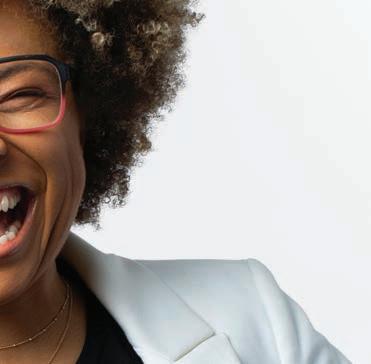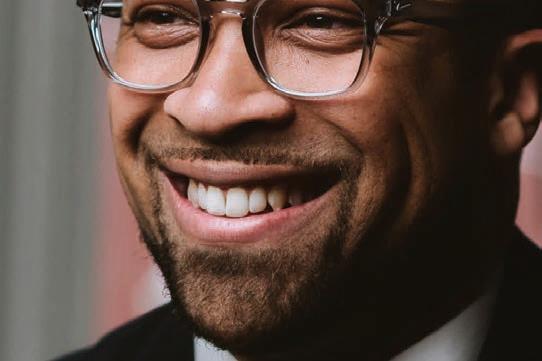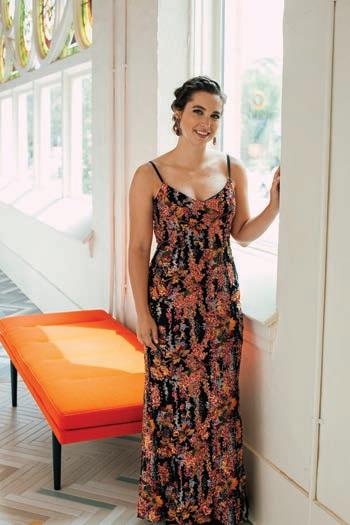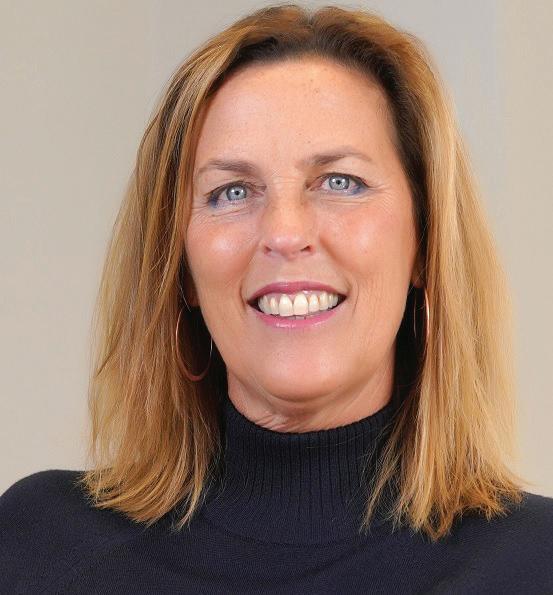
16 minute read
BEST-LAID PLANS
Local universities face up to the COVID-19 pandemic
BY STEPHEN ELLIOTT
Advertisement
n the wake of the Great Recession a
I decade ago, the leaders of Cumberland University, a small private college in Lebanon, were forced to cut costs like so many businesses and households around the country. at meant no more retirement matching for faculty and sta , no pay raises and a workforce reduction.
Now, faced with the most abrupt economic interruption in generations, Cumberland management has deemed none of those measures necessary, at least for now.
“ e full impact of the coronavirus pandemic remains to be seen economically,” says Paul Stumb, president of the university.
is fall, the college is actually expecting increased enrollment. While Stumb expects some international students will be unable to return to campus, he says some local students are opting to attend Cumberland rather than leave the state or the region, especially as other schools pivot to online-only instruction.
Cumberland has established a hybrid model of learning, where most students will attend half of their classes in person and watch the other half online in order to reduce the number of people in any given classroom.
Like other area colleges, Cumberland has no plans to adjust its curriculum due to the pandemic, either as part of economic contraction or as a distance-learning pivot.
“At this time, MTSU has no plans to eliminate degrees, programs or departments due to the COVID pandemic,” says Middle Tennessee State University Provost Mark Byrnes. “We have, however, restructured our fall course schedule to observe social distancing guidelines while giving maximum on-campus access to courses that include hands-on activities that are crucial in meeting learning outcomes.”
In Murfreesboro, MTSU has nearly 10 times as many students as Cumberland, and it’s part of a larger state network of universities. at size and layer of bureaucracy create both boons and barriers for a university facing the unprecedented pandemic.
Fisk University in Nashville has fewer than 1,000 students (up slightly from the prior year, though not as much of an increase as expected). Fisk Chief of Sta Joseph Watkins acknowledges that larger institutions including MTSU and the University of Tennessee have more resources on campus, such as their own medical school or a more robust internal stable of experts.
“ e pros and cons almost reach an equilibrium,” Watkins says. “ e pros are that we can move faster. It means we can communicate a singular message easier. e radius we have to hit is smaller. e drawbacks of being smaller is that we don’t have a medical school or a nursing apparatus here so we have to rely so heavily upon our partners, which are Meharry Medical College or other institutions. at’s what slows us down. We can create all these plans but we can’t necessarily e ectuate them all without a partner.”
Like Cumberland, Fisk is implementing a hybrid instructional model. But the two di er in that the Nashville college is dividing the fall semester into two sessions. For the rst half of the term, freshmen and a handful of other students will be on campus. ey will then switch with upperclassmen for the second half. Students must record a negative COVID-19 test upon arrival at Fisk and again after two weeks of on-campus isolation.
“We want to make sure our freshmen get accultured to Fisk in the same way that previous generations of Fiskites have,” Watkins says. “We felt that was the best way to make sure everyone had an opportunity to come to campus.”
None of these arrangements is ideal. University administrators, students and faculty, absent a deadly pandemic, would largely prefer to return for on-campus instruction. Leaders at both Fisk and Cumberland are con dent that they have prepared for the fall semester as much as possible by working with health experts and with peers in the Tennessee Independent Colleges and Universities Association. But that doesn’t mean the return to campus comes without risk — or inconvenience.
“Nobody really likes this but I think everybody understands it,” says Cumberland’s Stumb. “ ere’s still a lot of unknowns associated with this disease, so we can’t just say we’re not worried about students. But the truth is we’re much more concerned about the people our students might come in contact with — elderly faculty and sta , and students’ families.”
And while COVID’s e ects may be tempered in younger student populations, administrators believe they are key to a successful adapted semester. Stumb says the university has a “social contract” with its students and is asking them to wear masks and engage with a daily health screening app. At Fisk, Watkins says leaders are trying to emphasize “shared responsibility” to students.
“We are easily able to communicate that to faculty and sta because there’s more control of faculty and sta ,” Watkins says. “But for our students, especially if they’re freshmen just coming from high school, I don’t know if they understand that what they do individually impacts every single one of us. We’ve really been trying to stress to them that this is a shared responsibility. If you all work with us, we can have a semester that’s successful.”
As the past several months have proven, coronavirus has made long-term planning dif cult. Circumstances change rapidly, upending best-practices guidance nearly overnight in some cases.
Most college administrators blanch at the prospect of changing instructional and residential plans in the middle of a semester, or on the eve of it, but COVID has forced their hand.
“Agility: We have adopted that as our mantra for this year. We just have to be agile,” says Stumb.
thanks to our corporate sponsors
GALA SPONSOR
Bradley
GOLF SPONSOR
Al. Neyer
DEVELOPING LEADERS
Merryman-Farr, LLC
PLATINUM SPONSOR
Empower Electric • Gresham Smith • H.G. Hill Realty Company, LLC Highwoods • Layton Construction Company, LLC Office Resources Inc. (ORI) • Pinnacle Financial Partners
GOLD SPONSOR
Al. Neyer • Bell & Associates Construction, L.P. • CBRE Crain Construction, Inc. • I.C. Thomasson Associates, Inc. • JE Dunn Construction Office Furniture + Related Services • Synovus • T.W. Frierson Contractor • Waller
SILVER SPONSOR ARCO/Murray • Baker Donelson • Bass Berry & Sims, PLC • Boyle Investment Company • Brasfield & Gorrie • Cabling Innovations • Centric Architecture Charles Hawkins Co. • Colliers International • Commonwealth Commercial • Cushman & Wakefield • Duke Realty • DWC Construction Company, Inc. Eakin Partners, LLC. • EsA • First Horizon Bank • Foundry • Holladay Properties • Jones, Lang, LaSalle • Kimley-Horn and Associates, Inc. • Lines, Inc MarketStreet Enterprises • Mayer Electric Supply, Inc. • NAI Nashville • Nashville Yards • Panattoni Development Company, Inc. • ProLogis ProVenture • Ragan-Smith Associates, Inc. • Sherrard Roe Voigt & Harbison • Southeast Venture • Stites & Harbison PLLC • SunTrust Bank The Parkes Companies, Inc. • Thomas Constructors • TM Partners, PLLC • Turner Construction Company • US Bank
BRONZE LEVEL CESO • Diversified • DPR • Feltus Hawkins Design • Flow Construction Co Green & Little • Messer • Synergy Business Environment
Our Most Powerful Women program returns this year with another terrifi c group of women leaders from Middle Tennessee’s business and nonprofi t worlds. On the following pages, we introduce you to Jane Allen, Mignon Francois, Shanna Jackson and Becca Stevens. They will gather Sept. 16 for a wide-ranging discussion on leadership and career growth that you’ll be able to attend virtually. You can buy your ticket at nashvillemostpowerfulwomen.com.
As we did last year, we have teamed Most Powerful Women with the Model Behavior program from our colleagues at Nfocus. You can meet this year’s Model Behavior honorees on pages 42 and 43 and read more about the nonprofi t causes dear to them at nfocusnashville.com.


mignonfrancois

Founder and owner, The Cupcake Collection


Was there any advice that you received when you started that really stuck with you and inspired you? I often say that it was rap lyrics that changed my life. The lyrics are from a collaboration Kanye West and Jay-Z did called “Otis.” One particular lyric said, “They ain’t seen me ‘cause I pulled up in my other Benz / Last week I was in my other other Benz,” and I just thought, “Wow, he has options and they’re luxurious!” And I just asked God, “Why?” And I felt that urging on my spirit that said, “Are you willing to do what he does to get what you have?” At that point, I knew work was going to be required of me.




Is there a piece of advice that you give to other leaders when they come to you for guidance? I always tell people that the ideas they have are not their own. If you realize that the ideas are really not yours, that they were dropped to you, you would hold them di erently. It wouldn’t be as hard to get that thing started if you knew that you were just being asked to take care of it, if you were being asked to steward over it. God himself is asking to collaborate in this with you.
I like to say it like this: If the creator of a party invited you to an all-white party but specifi cally called you and said, “I want you to wear orange to my party,” when you get to the party you’re gonna wear that orange in all your glory, knowing that you must be special. And I think that’s what happens in business and entrepreneurship and leadership. You’re singled out and you’ve been asked to steward over a gift. When we see it that way, I think, it could take some of the fear of failure out of it.



What do you feel is the biggest challenge facing women in leadership today? I think we discount ourselves and our experiences. I say this all the time: I was a stay-at-home mom and I liked to call myself a household manager. Because that’s exactly what I was doing. I was managing seven people’s lives. And I think that we discount those experiences, especially when we’re going back into the workforce and saying, “What do I have to offer?” You’ve defi nitely got something to o er.


becca stevens
Founder, Thistle Farms
How would you say your leadership style has evolved over time? I have learned to let go so I can keep evolving. New things come when we make space.
What have you learned about how to lead during the COVID pandemic? We have to dig deep into our creative side so that pivoting doesn’t make us dizzy. I am going back to my most basic principles that called me to this work.

Will you bring anything about the way you run an organization during the pandemic into the post-pandemic world? I hope I can bring more gratitude and humility. I also hope I can bring all I have learned about systematic racism into the communities that I serve.
What’s the best leadership advice you received early in your career? Do small things with great love and big things will emerge if we are paying attention.
What advice would you give those looking to become an active mentor? Walk alongside people, don’t try and lead them. We can be great leaders as we walk with people and respect their journey.
What’s the most common piece of advice you find yourself giving other leaders? Trust your work more than your inspiration. Inspiration comes and goes, but faithfully executing the dayto-day tasks is how we bear fruit. The inspiration will come.
shanna jackson
President, Nashville State Community College
What has come relatively easy for you during this odd pandemic time? What has been di cult? I have always been adaptable to change. Therefore, I have viewed this uncharted time as an opportunity to transform and enhance the support Nashville State can provide to our new and returning students. Without question, the most di cult aspect is not knowing when the pandemic will end and the impact it will have on our students and community.
Who was an important mentor and what’s the most lasting tenet that person left you? My mother, Carol, has been and still is my most important mentor. She instilled in me at an early age that I should never let my gender or the color of my skin stop me from being successful. That has allowed me, even through di cult challenges, to never stop striving toward achieving my goals.
What’s the most common piece of advice you find yourself giving other leaders? Adversity is going to happen; how you respond as a leader is critical. It is important to view every challenge as an opportunity to innovate and transform, and to make the organization better. Can you tell us about a pivotal moment or decision you made that helped advance your career? Around 2003, I decided I wanted to become a community college president. I boldly asked my president at Vol State, Dr. Warren Nichols (who was fairly new), to be my mentor. Over the years, that mentorship became foundational in understanding the experiences and skills I needed to acquire to reach my goal. How would you say your leadership style and strengths have evolved over time? The most significant evolution occurred when I began to lead leaders. You realize that not everyone wants to be, or should be, led the same way. Even in my role today, I am evolving and adapting to the needs of those I lead, in order to provide an environment for them to thrive and be successful.

janeallen
CEO, Nashville Entrepreneur Center
How would you say your leadership style and strengths have evolved over time? I set high expectations for the business/organization and for the employees. Yet, I am fortunate to have and continue to work with talented people who know well how to do their jobs. They bring me in when they have a problem, then we work through it together. I trust people to do what they need to do.
In the beginning, I felt the need to be involved in most everything and work closely on most everything. This was limiting to the business, the people and myself.
What is the biggest challenge facing women in leadership? Based on my experience, it is often loneliness — a longing to spend time with friends and colleagues. Between the time spent with the business/organization and the time spent with family (both of which I always wanted to do), there was not much time left for peers with whom I could talk or share experiences and ideas.
Who was an important mentor and what’s the most lasting tenet that person left you? U.S. District Judge Edward H. Johnstone taught me that it’s good to ask why, to think for yourself and to work to keep the playing field level. What have you learned about how to lead during the COVID pandemic? The importance of communicating and the reality that home and business are now intertwined. Thus, you need to consider things other than the employee, such as how their family is doing, talking through barriers for getting work done and how they are handling stress, anxiety and fears. How do you think you’ll lead di erently once we’ve put the pandemic behind us? In some ways, the same — lead by example and help those with whom I am fortunate to work with expand and grow professionally — while at the same time hopefully a bit more patient knowing that everyone is processing and absorbing this pandemic in di erent ways.

ESTEEMED COMPANY
For nearly a decade, we’ve been honored to bring together area women leaders for candid and inspiring conversations about leading, mentoring and paving the way for others. Here’s who preceded this year’s class and where they worked at the time.
2011
Sharon Hurt, Je erson Street United Merchants Partnership Ellen Lehman, Community Foundation of Middle Tennessee Jenneen Kaufman, Tennessee Titans Linda Rebrovick, Consensus Point Claire Tucker, CapStar Bank
2012
Megan Barry, Premier Agenia Clark, Girl Scouts of Middle Tennessee Aileen Katcher, Katcher Vaughn & Bailey Dawn Rudolph, Saint Thomas Health
2013
Jacky Akbari, Nashville Career Advancement Center Sherry Stewart Deutschmann, LetterLogic Stacey Garrett, Bone McAllester Norton Janet Miller, Nashville Area Chamber of Commerce
2014
Lisa Boggs, Bridgestone Americas Glenda Glover, Tennessee State University Heather Rowan, TriStar Centennial Medical Center Sally Williams, Ryman Auditorium
2015
Paula Lovell, Lovell Communications Joelle Phillips, AT&T Renata Soto, Conexión Americas Christie Wilson, The Wilson Group Real Estate Services
2016
Tammy Hawes, Virsys12 Beth Hoeg, Trinisys Nicole Tremblett, HCA Healthcare Rachel Werner, Built Technologies
2019
Maneet Chauhan, Morph Hospitality Jane MacLeod, Checkwood Mekesha Montgomery, Frost Brown Todd Sharon Roberson, YWCA Nashville & Middle Tennessee Carol Yochem, First Horizon Bank

RESILIENCE

Nashville is a resilient city filled with risk-takers. Positive energy and camaraderie fuel the spirit of the region. Every day, people find new ways to take advantage of opportunities offered, to make something from nothing, to make their mark, to realize their dreams. At the center of this spirit is the Nashville Area Chamber of Commerce. Be a part of something great.


nashvillechamber.com
The Nashville Post salutes the Nfocus 2020 Model Behavior honorees
To learn more about these dynamic philanthropists and the causes dear to their hearts, pick up the September issue of Nfocus or visit nfocusnashville.com Perri duGard Owens Nashville Children's Theatre Emerald Mitchell Moves and Grooves




Tina Doniger Community Resource Center
Julieanna Huddle CASA Nashville
Martha Silva Conexión Américas Karen Moore Project Redesign Sara Morgan You Have the Power



Tara Scarlett Nashville Zoo Mary Flipse Renewal House Nancy Keil Second Harvest













